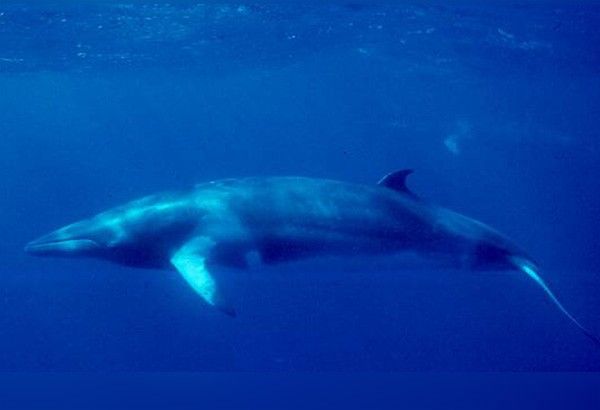Whale poo worth 'as much as gold'

MANILA, Philippines — They're not just literally gigantic, but some whales play an important part in earth's ecosytem.
Minke whales, in particular, was the suject of a study by a group of researchers at the Norwegian Institute for Marine Research.
The group studied the concentration of nutrients in their feces before these get dissolved in seawater.
For such a queasy subject such as excrements, it was an essential undertaking. Think of land animals' poo being used as fertilizers. This is the same concept that was applied to the Norwegian study.
"It can sound disgusting, but for the ecosystem it's worth its weight in gold," researchers said in a statement to AFP.
"The idea is simply that the feces fertilize the sea in the same way that cows and sheep do on land," they continued.
The study was made possible as Norway is one of the few countries that allow the commercial hunting of said species.
In an article on Earth.org, it said that Norway is among the countries that allow commercial hunting of whales, the other two are Japan and Iceland. It added that Norway's whaling season has seen a rise of whales being caught. In 2021, there were reportedly 575 whales killed in Norway.
The study found that the daily excrement releases about 10 tons of phosphorus and 7 tons of nitrogen into the oceans.
When one goes back to basic biology, these are the same nutrients needed to grow a phytoplankton, which are microscopic algae that absorb carbon dioxide through photosynthesis and convert it into oxygen.
The scientists concluded that the minke whale excrement contributed to between 0.2 and 4% of daily phytoplankton production in the Arctic Svalbard region.
"The real contribution of whales is probably higher because these estimates do not include urine, which is very rich in nitrogen," research leader Kjell Gundersen told AFP.
It goes without saying that the more there are phytoplanktons, the more carbon dioxides are absorbed.
"This is positive for the climate," he noted, "but we don't know the net balance of whales in terms of greenhouse gases."
It seems like there is more to the picture as these creatures are also known to emit methane, a greenhouse gas that affects the earth's temperature and climate system, when they breathe.
This concern is set to be addressed in a European study that will start this coming June and is expected to last for four years. — With reports from AFP
RELATED: Blue whales eat 10 million pieces of microplastic a day — study



















